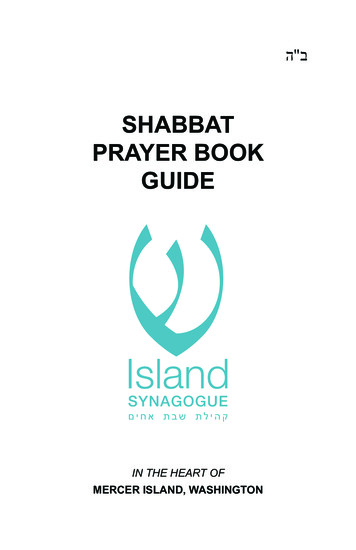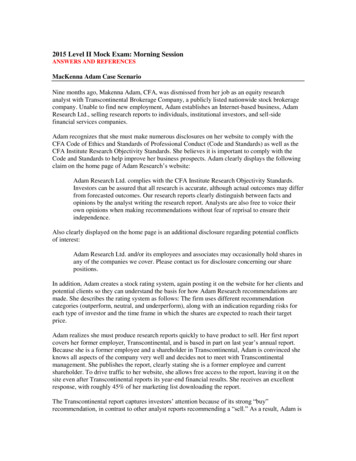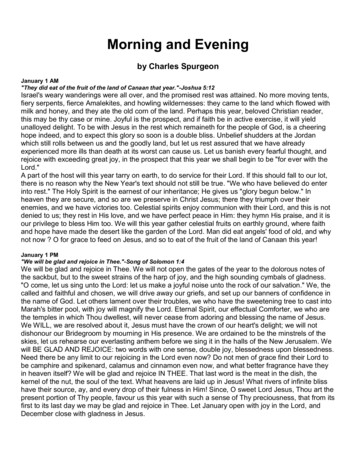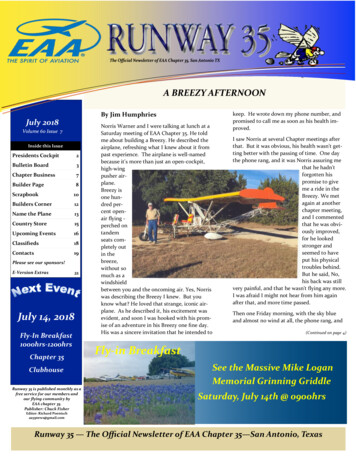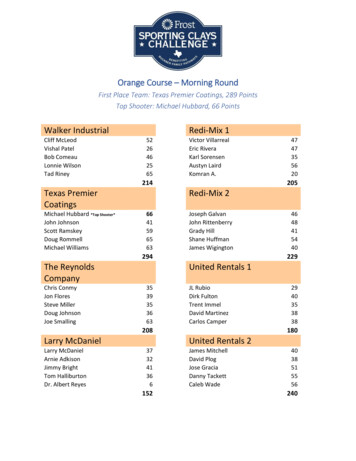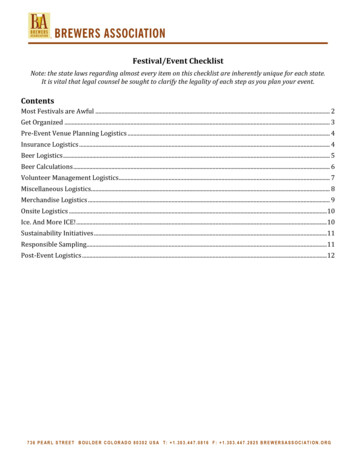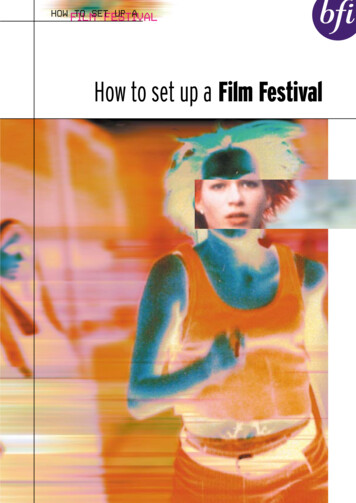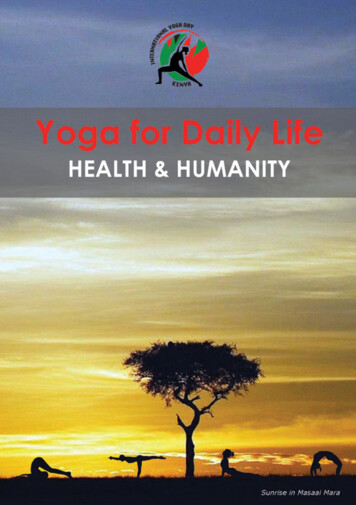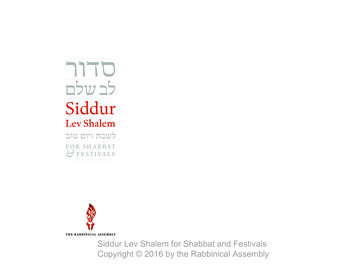
Transcription
סדור לב שלם SiddurLev Shalem לשבת ויום טוב for shabbat& festivalsthe rabbinical assemblySiddur Lev Shalem for Shabbat and FestivalsCopyright 2016 by the Rabbinical Assembly
Who Gives Sight tothe BlindWhen we thank God forgiving sight to the blind, weexpress thankfulness not onlyfor the literal gift of sight,but also for our capacity forinsight, for our ability to beaware of the world aroundus, and for the capacity tounderstand ourselves andour world.Rabbi Benjamin said:We are all blind until theHoly One enlightens oureyes, as the Bible recordsregarding Hagar, “AndGod opened her eyes andshe saw a well” (Genesis21:19).—genesis rabbahImitating GodBlessings for a New DayWe rise.Barukh atah Adonai, our God, sovereign of time and space,who enables the bird to distinguish day from night,who made me in the divine image,who made me free,who made me a Jew,who gives sight to the blind,who clothes the naked,Barukh atah Adonai eloheinu melekh ha-olam,asher natan la-sekhvi vinah l’havhin bein yom u-vein lailah.Barukh atah Adonai eloheinu melekh ha-olam,she-asani b’tzalmo.Barukh atah Adonai eloheinu melekh ha-olam,she-asani ben/bat horin.Barukh atah Adonai eloheinu melekh ha-olam,she-asani yisrael.Barukh atah Adonai eloheinu melekh ha-olam,pokei ah ivrim.Barukh atah Adonai eloheinu melekh ha-olam,malbish arumim.Our prayers thanking Godfor the clothes we wearand for the ability to standup and walk about arealso a reminder of the imperative for us to provideclothing for the “naked,” to offer helpto those who are in physical need, andto defend those who are unjustifiably“bound.” The ancient rabbis commented on the verse, “You shall followAdonai your God.” (Deuteronomy13:5)—just as God is kind and loving,so too you should be kind and loving;just as God performs acts of generosity,so should you; just as God is patient, soshould you be, as it is written, “You shallmake yourselves holy, for I, Adonai yourGod, am holy” (Leviticus 19:2). ִבּ ְרכוֹת ַה ַ ֽשּׁ ַחר B ב ְרכוֹ ת ַה ׁ ּ ַ ֽש ַחר .ִּ As reportedin the Babylonian Talmud,We rise.most of the b’rakhot in thiscollection were originallyrecited at home as onewent through the dailyacts of waking and rising(Berakhot b). Each passage extols God as we beginthe day: on arising fromsleep, on hearing the birdssing, on dressing, on takingone’s first steps, and so on.Maimonides stated: “Theseb’rakhot are without a prescribed order; each is to berecited only on the appropriate occasion. and notas part of the synagogueservice” (Mishneh Torah,Hilkhot Tefillah : , ). Other authorities, however, beginning with the siddur of Rav Amram Gaon in the th century, recommended the public recitation of these b’rakhot. Thishas been the standard Ashkenazic practice to this day; the common Sephardic practice isto recite these b’rakhot privately and to begin the service with the morning psalms., להינוּ ֶ ֽמלֶ ך ָהעוֹלָ ם ֽ ֵ ָבּרוּך ַא ָתּה יהוה ֱא . ֲא ֶשׁר נָ ַתן לַ ֶשּׂ ְכ ִוי ִבינָ ה לְ ַה ְב ִחין ֵבּין יוֹם ֵוּבין לָ ֽיְ לָ ה . ֶשׁ ָע ַ ֽשׂנִ י ְבּ ַצלְ מוֹ , להינוּ ֶ ֽמלֶ ך ָהעוֹלָ ם ֽ ֵ ָבּרוּך ַא ָתּה יהוה ֱא , להינוּ ֶ ֽמלֶ ך ָהעוֹלָ ם ֽ ֵ ָבּרוּך ַא ָתּה יהוה ֱא . חוֹרין ִ ֶשׁ ָע ַ ֽשׂנִ י ֶבּן \ ַבּת . ֶשׁ ָע ַ ֽשׂנִ י יִ ְשׂ ָר ֵאל , להינוּ ֶ ֽמלֶ ך ָהעוֹלָ ם ֽ ֵ ָבּרוּך ַא ָתּה יהוה ֱא . פּוֹק ַח ִעוְ ִרים ֽ ֵ , להינוּ ֶ ֽמלֶ ך ָהעוֹלָ ם ֽ ֵ ָבּרוּך ַא ָתּה יהוה ֱא . ַמלְ ִבּישׁ ֲע ֻר ִמּים , להינוּ ֶ ֽמלֶ ך ָהעוֹלָ ם ֽ ֵ ָבּרוּך ַא ָתּה יהוה ֱא B ברו ְּך .ָּ Many commentators argue that the word barukh is not a passive verbmeaning “blessed,” but rather an adjective descriptive of God: God is the wellspring of allblessings. (The similar-sounding Hebrew word b’reikhah means “pool of water.”) Thus theopening words of a b’rakhah are an acknowledgment that God is the source of all blessings (Meir ibn Gabbai).W ש ְכוִ י ִבינָ ה ׂ ֶ ּ א ׁ ֶשר נָ ַתן ַל .ֲ We are a part of thenatural world, responding to the morning sunlight as does all of nature. This firstblessing attributes understanding to the animal realm and points to humans takinginstruction from them.The language is taken from the Book of Job ( : ), where God responds to Job out ofthe whirlwind, saying: “Who placed wisdom in the most hidden places? Who gave understanding to the bird? Who is wise enough to describe the heavens?” The word used forbird is sekhvi, and the Babylonian Talmud identifies it as a rooster (Rosh Hashanah a). I ֹ שנִ י ְּב ַצלְ מו ׂ ֽ ַ ש ָע .ֶ ׁ This blessing and the next one (“whomade me free”) are versions of blessings mentioned in the Tosefta (Berakhot : ) and inthe Babylonian Talmud (Menahot b). They have been emended in Conservative prayerbooks on the basis of manuscript fragments, found in the Cairo Genizah.—based on the babylonian talmudWHO MADE ME A JEW ש ָר ֵאל ׂ ְ ִ שנִ י י ׂ ֽ ַ ש ָע .ֶ ׁ This positive formulation is the wording in the Babylonian Talmud (Menahot b).W פוֹ ֵ ֽק ַח ִעוְ ִרים .ּ Said when opening the eyes. Many of theseblessings are taken from the psalmist’s descriptions of God’s actions: “. . . sets prisonersfree . . . restores sight to the blind . . . makes those who are bent stand straight . . .” (Psalm : – ).W מלְ ִּב ׁיש ֲע ֻר ִּמים .ַ God’s clothing of Adam and Eve (Genesis : )was an act of kindness exhibited to these first humans, even as they were exiled from theGarden.103Siddur Lev Shalem for Shabbat and Festivals שחרית לשבת ויום טוב · ברכות השחר Copyright 2016 by the Rabbinical Assembly · · 103
Barukh atah Adonai, ourGod, sovereign of timeand space,who endows each andevery living thing withunique capabilities andpurpose,and creates me in thedivine image;who grants me free will,and the ability to exercise it,and blesses me with thegift and responsibility ofbeing a Jew;who opens my eyes tothe world around andwithin me, blessing mewith insight, awareness,and understanding,and protects me when Ifeel vulnerable,exposed, or ashamed;who frees me from all thatlimits or confines me,and restores my dignitywhen I feel bent orbroken;who leads me back to solidground when the worldshifts beneath my feet,and guides me along mypath when I am lost orconfused;who creates me withneeds, and the wherewithal to meet them,and strengthens thepeople Israel with thecourage to embody ourbeliefs;who crowns the peopleIsrael with a sense ofmission and purpose,and renews me each nightwhen I am weary, that Imay awake to each newday with strength.—jan uhrbach104who releases the bound,who straightens those who are bent,who stretches out the earth over the waters,who steadies our steps,who has provided for all my needs,who strengthens the people Israel with courage,who crowns the people Israel with glory,and who gives strength to the weary.Barukh atah Adonai eloheinu melekh ha-olam, matir asurim.Barukh atah Adonai eloheinu melekh ha-olam, zokef k’fufim.Barukh atah Adonai eloheinu melekh ha-olam,roka ha-aretz al ha-mayim.Barukh atah Adonai eloheinu melekh ha-olam,ha-meikhin mitzadei gaver.Barukh atah Adonai eloheinu melekh ha-olam,she-asah li kol tzorki.Barukh atah Adonai eloheinu melekh ha-olam, ozer yisrael bigvurah.Barukh atah Adonai eloheinu melekh ha-olam, oter yisrael b’tifarah.Barukh atah Adonai eloheinu melekh ha-olam,ha-noten laya eif ko ah.Barukh atah Adonai, our God, sovereign of time and space,who removes sleep from my eyes and slumber from my eyelids.May it be Your will, our God and God of our ancestors,that You accustom us to study Your Torahand cling to Your mitzvot;do not lead us into error, or transgression, or sin,nor subject us to trials or disgrace.Do not let the inclination to evil control us,and distance us from people who would do us eviland from friends who commit evil;spur in us the yearning to do good and to act with goodness.Bend our will and our desires to Your service. Today and every day, may You look upon us, and may all whosee us look upon us, with eyes filled with kindness, love,and compassion. Act toward us with kindly love.Barukh atah Adonai, who acts with kindly love to thepeople Israel. סוּרים ִ ַמ ִתּיר ֲא , להינוּ ֶ ֽמלֶ ך ָהעוֹלָ ם ֽ ֵ ָבּרוּך ַא ָתּה יהוה ֱא . פוּפים ִ זוֹקף ְכּ ֵ , להינוּ ֶ ֽמלֶ ך ָהעוֹלָ ם ֽ ֵ ָבּרוּך ַא ָתּה יהוה ֱא , להינוּ ֶ ֽמלֶ ך ָהעוֹלָ ם ֽ ֵ ָבּרוּך ַא ָתּה יהוה ֱא . רוֹקע ָה ָ ֽא ֶרץ ַעל ַה ָ ֽמּיִ ם ַ, להינוּ ֶ ֽמלֶ ך ָהעוֹלָ ם ֽ ֵ ָבּרוּך ַא ָתּה יהוה ֱא . ַה ֵמּ ִכין ִמ ְצ ֲע ֵדי גָ ֶֽבר , להינוּ ֶ ֽמלֶ ך ָהעוֹלָ ם ֽ ֵ ָבּרוּך ַא ָתּה יהוה ֱא . ל־צ ְר ִכּי ֶשׁ ָ ֽע ָשׂה לִ י ׇכּ ׇ , להינוּ ֶ ֽמלֶ ך ָהעוֹלָ ם ֽ ֵ ָבּרוּך ַא ָתּה יהוה ֱא . בוּרה ָ ְ אוֹזֵ ר יִ ְשׂ ָר ֵאל ִבּג , להינוּ ֶ ֽמלֶ ך ָהעוֹלָ ם ֽ ֵ ָבּרוּך ַא ָתּה יהוה ֱא . עוֹטר יִ ְשׂ ָר ֵאל ְבּ ִת ְפ ָא ָרה ֵ, להינוּ ֶ ֽמלֶ ך ָהעוֹלָ ם ֽ ֵ ָבּרוּך ַא ָתּה יהוה ֱא . נּוֹתן לַ יָּ ֵעף ֹֽכּ ַח ֵ ַה , להינוּ ֶ ֽמלֶ ך ָהעוֹלָ ם ֽ ֵ ָבּרוּך ַא ָתּה יהוה ֱא . נוּמה ֵמ ַע ְפ ַע ָפּי ָ וּת ְ ַה ַמּ ֲע ִביר ֵשׁנָ ה ֵמ ֵעינַ י בוֹתינוּ ֽ ֵ אלהי ֲא ֵ ֵ להינוּ ו ֽ ֵ יהוה ֱא , יהי ָרצוֹן ִמלְּ ָפנֶ ֽיך ִ ִו , ֹתיך ֽ ֶ וְ ַד ְבּ ֵ ֽקנוּ ְבּ ִמ ְצ , תוֹר ֶ ֽתך ָ ֶשׁ ַתּ ְרגִּ ילֵ ֽנוּ ְבּ ,[ מּוֹתינוּ ֽ ֵ ]וְ ִא וְ לא , וְ לא לִ ֵידי ֲע ֵב ָרה וְ ָעֹן , יאנוּ לא לִ ֵידי ֵח ְטא ֽ ֵ וְ ַאל ְתּ ִב , ט־בּֽנוּ יֵ ֶֽצר ָה ָרע ָ ֶ וְ ַאל ַתּ ְשׁל , וְ לא לִ ֵידי ִבזָּ יוֹן , לִ ֵידי נִ ָסּיוֹן וְ ַד ְבּ ֵ ֽקנוּ ְבּיֵ ֶֽצר ַהטּוֹב . יקנוּ ֵמ ָא ָדם ָרע ֵוּמ ָח ֵבר ָרע ֽ ֵ וְ ַה ְר ִח . וְ כוֹף ֶאת־יִ ְצ ֵ ֽרנוּ לְ ִה ְשׁ ַתּ ְע ֶבּד־לָ ך , טוֹבים ִ ְוּב ַמ ֲע ִשׂים , לְ ֵחן וּלְ ֶ ֽח ֶסד וּלְ ַר ֲח ִמים ְבּ ֵעינֶ ֽיך , ְוּב ׇכל־יוֹם , וּתנֵ ֽנוּ ַהיּוֹם ְ . טוֹבים ִ וְ ִתגְ ְמלֵ ֽנוּ ֲח ָס ִדים , ל־רוֹאינוּ ֵֽ ְוּב ֵעינֵ י ׇכ . טוֹבים לְ ַעמּוֹ יִ ְשׂ ָר ֵאל ִ גּוֹמל ֲח ָס ִדים ֵ , ָבּרוּך ַא ָתּה יהוה W מ ִּתיר ֲאסו ִּרים .ַ Releasing thefetters of wickedness, freeing the oppressed, feedingthe hungry, and providingfor the homeless are mentioned by the prophet Isaiah as acts that God desiresof human beings ( : ).W זוֹ ֵקף כפו ִּפים .ְּ Literally, “makingthose who are bowed downstand upright.” This phrase,as found in Psalm : ,is the biblical warrant forstanding up straight whenGod’s name is pronounced,after having bowed at thebeginning of a blessing.W רוֹ ַקע ָה ָ ֽא ֶרץ ַעל ַה ָּ ֽמיִ ם . Psalm : . Genesis depicts dryland being formed fromthe splitting of the primalwaters.M Y יהי ִ ִ ו רצוֹ ן .ָ A prayer recorded inthe Babylonian Talmud(Berakhot b).T נִ ָּסיוֹ ן . The trials oflife are many: confrontingpersonal illness or tragicsituations, difficult ethicaldilemmas, temptations thatmay endanger us. In addition, because faith is oftenaccompanied by doubt,and even the strongestfaith may be vulnerable intrying times, we hope thattoday will affirm ratherthan challenge our faith.I יֵ ֶֽצר ה ָרע .ָ The ancient rabbisbelieved that we are subject to impulses that lead us to do good or evil. For instance, competitiveness canspur us to exert greater energy but it can also lead to hurtful behavior. The yearning for fame and the approbation of others can influence us to perform acts of kindness and to exercise leadership roles, but it can alsoproduce egos that are never satisfied. We yearn to do good, but we are often impeded by our jealousies, ourself-concern, and our desire for mastery and conquest.Siddur Lev Shalem for Shabbat and Festivals שחרית לשבת ויום טוב · ברכות השחר Copyright 2016 by the Rabbinical Assembly · · 104
Psalms for Shabbat, New Moon, and FestivalsPsalms from the following pages may be recited, as appropriate to the occasion.Additional psalms for weekdays may be found on pages – .on shabbat: psalm 92Today is Shabbat, the day on which the Levites recited this psalm in the Temple:a psalm: the song of the day of shabbatIt is good to thank You, Adonai, and sing to Your name, Most High;to proclaim Your love at daybreak, Your faithfulness each night./Finger the lute, pluck the harp, let the sound of the lyre rise up.You gladdened me with Your deeds, Adonai,and I shall sing of Your handiwork./How wonderful are Your works, Adonai,/how subtle Your designs!The arrogant do not understand, the fool does not comprehend this:the wicked flourish like grass and every evildoer blossoms,only to be destroyed forever—/but You, Adonai, are exalted for all time.Surely Your enemies, Adonai, surely Your enemies will perish;all who commit evil will be scattered.As a wild bull raises up its horn,You raised my head high, anointed it with fresh oil.As my enemies gather against me,my gaze remains steady, for my ears listen and hear:The righteous flourish like the date palm,thrive like a cedar in Lebanon;planted in the house of Adonai,they flourish in our God’s courtyards. In old age they remain fruitful, still fresh and bountiful,proclaiming: Adonai is upright, my rock in whom there is no flaw.Tzadik katamar yifrah, k’erez balvanon yisgeh.Sh’tulim b’veit Adonai, b’hatzrot eloheinu yafrihu. Od y’nuvun b’seivah, d’sheinim v’ra ananim yihyu.L’hagid ki yashar Adonai, tzuri v’lo avlatah bo. ְוּרגָ לִ ים , ח ֶדשׁ ֹ ֽ רֹאשׁ , ִשׁיר ֶשׁל יוֹם לְ ַשׁ ָבּת Psalms from the following pages may be recited, as appropriate to the occasion.Additional psalms for weekdays may be found on pages – . אוֹמ ִרים ְבּ ֵבית ַה ִמּ ְק ָדּשׁ׃ ְ ֶשׁבּוֹ ָהיוּ ַהלְ ִויִּ ם , ַהיּוֹם יוֹם ַשׁ ַבּת ֽק ֶֹדשׁ ִמ ְזמוֹר ִשׁיר לְ יוֹם ַה ַשּׁ ָבּת , וּלְ זַ ֵמּר לְ ִשׁ ְמך ֶעלְ יוֹן , טוֹב לְ הֹדוֹת לַ יהוה . וֶ ֱאמוּנָ ְתך ַבּלֵּ ילוֹת , לְ ַהגִּ יד ַבּ ֽ ֹבּ ֶקר ַח ְס ֶ ֽדּך . ֲעלֵ י ִהגָּ יוֹן ְבּ ִכנּוֹר , ֲעלֵ י ָעשׂוֹר וַ ֲעלֵ י נָ ֶֽבל . ְבּ ַמ ֲע ֵשׂי יָ ֶ ֽדיך ֲא ַרנֵּ ן , עלֶ ֽ ך c ִכּי ִשׂ ַמּ ְח ַ ֽתּנִ י יהוה ְבּ ׇפ . ְמאֹד ָע ְמקוּ ַמ ְח ְשׁב ֶ ֹֽתיך , ַמה גָּ ְדלוּ ַמ ֲע ֶ ֽשׂיך יהוה . ְוּכ ִסיל לא יָ ִבין ֶאת־זֹאת , ִאישׁ ַבּ ַֽער לא יֵ ָדע , ִבּ ְפ ֽ ֹר ַח ְר ָשׁ ִעים ְכּמוֹ ֵ ֽע ֶשׂב וַ יָּ ִ ֽציצוּ ׇכּל־פּ ֲֹעלֵ י ָ ֽאוֶ ן , לְ ִה ָשּׁ ְמ ָדם ֲע ֵדי ַעד . וְ ַא ָתּה ָמרוֹם לְ עֹלָ ם יהוה , ֹאבֽדוּ ֵ ִכּי ִהנֵּ ה אֹיְ ֶבֽיך י , יהוה , ִכּי ִהנֵּ ה אֹיְ ֶבֽיך . יִ ְת ָפּ ְרדוּ ׇכּל־פּ ֲֹעלֵ י ָ ֽאוֶ ן . שׁ ֶמן ַר ֲענָ ן ֽ ֶ ַבּלּ ִ ֹֽתי ְבּ , וַ ָ ֽתּ ֶרם ִכּ ְר ֵאים ַק ְרנִ י , ַבּ ָקּ ִמים ָעלַ י ְמ ֵר ִעים ִתּ ְשׁ ַ ֽמ ְענָ ה ׇא ְזנָ י , שׁוּרי ָ וַ ַתּ ֵבּט ֵעינִ י ְבּ , ְכּ ֶ ֽא ֶרז ַבּלְּ ָבנוֹן יִ ְשׂגֶּ ה , ַצ ִדּיק ַכּ ָתּ ָמר יִ ְפ ָרח . להינוּ יַ ְפ ִ ֽריחוּ ֽ ֵ ְבּ ַח ְצרוֹת ֱא , ְשׁתוּלִ ים ְבּ ֵבית יהוה , ְדּ ֵשׁנִ ים וְ ַר ֲענַ נִּ ים יִ ְהיוּ , עוֹד יְ נוּבוּן ְבּ ֵשׂ ָיבה . וְ לא ַעוְ לָ ָֽתה בּוֹ , צוּרי ִ , לְ ַהגִּ יד ִכּי יָ ָשׁר יהוה תהלים צב Some congregations recite Mourner’s Kaddish here; see page .S F P . Since the lateMiddle Ages, it has beencustomary to recite aspecial psalm for eachday of the week, a custombased on the Mishnah’sreport that these psalmswere recited in the Templeby the Levites (Tamid : ).Tractate Sofrim ( : – ),a minor tractate of theTalmud, records that onfestivals, other psalmsappropriate to theseoccasions were recited.Accordingly, we includehere the traditional psalmfor Shabbat and the NewMoon, as well as a psalmfor each of the festivals. begins by contemplating the wonderof creation and ends witha vision of the righteousflourishing in God’s house.It thus celebrates twothemes of Shabbat: Shabbat as the day of appreciating creation and Shabbat asa taste of redemption. W ל־פ ֲֹע ֵלי ָ ֽאוֶ ן ּ יִ ְת ּ ָפ ְרד ּו ׇּכ . Inthis specific vision of theend-time, enemies are notdestroyed, but simply madeineffective. בלּ ִ ֹֽתי ְּב ׁ ֶ ֽש ֶמן ַר ֲענָ ן .ַּ The Hebrew may betranslated “You anointed me with fresh oil,” but Radak (David Kimhi, – , Provence) suggests that the object of the verb is thespeaker’s head mentioned in the first part of the verse; the anointingis ceremonial, giving the speaker a special divine function and blessing.The faithful thus become God’s royal entourage.Some congregations recite Mourner’s Kaddish here; see page .112Siddur Lev Shalem for Shabbat and Festivals שחרית לשבת ויום טוב · ברכות השחר Copyright 2016 by the Rabbinical Assembly · · 112
PesahIt took God but six days tocreate the world; it took mymother at least twice thatlong to prepare for Passover.At the seder on the first nightshe would often doze froma mild case of exhaustion. . . .Yet as we approached therecitation of the ten plagues,she would invariably bestirherself to protect her turf.The custom to remove a dropof wine from our cups at themention of each plague wasenacted in our householdsymbolically. . . . Thus as weenumerated the plaguestogether we made no morethan a pretense of dippinga forefinger into the wine tospill a drop on the table. The meaning of this unmannered gesture is . . . quiteprofound. While each plaguemay have weakened hisresolve, it was the devastation wrought by the death ofthe firstborn . . . that endedall resistance. The drop ofspilled wine at the seder signifies a diminution of our joy.We are mindful that redemption for Israel inflicted loss oflife on the Egyptians. . . . Jewstemper their celebrationwith a dose of compassion.Each plague killed some ofGod’s creatures. This ritual of selftranscendence is part of alarger matrix. . . . God choseAbraham to be a blessing forhumanity, and hence Jewswill ultimately be judged byhow they treat the other. Isthat not why his descendantshad to endure slavery beforethey could take possession ofthe Land? The social ethic ofthe prophets challenges thearrogance of all victors, Jewish as well as gentiles.—ismar schorsch116 לְ ֶפ ַֽסח on pesah: psalm 136 אוֹמ ִרים׃ ְ ֶשׁבּוֹ , ַהיּוֹם ַחג ַה ֶ ֽפּ ַסח Today is the Festival of Pesah, on which we say:Give thanks to Adonai, for God is good;give thanks to God, almighty;give thanks to the supreme sovereign:ki l’olam hasdofor God’s love endures foreverwho alone works great wonders,creating the heavens with wisdom,stretching the earth over its waters;ki l’olam hasdofor God’s love endures foreverwho formed the great lights:the sun to rule by day,the moon and stars by night;ki l’olam hasdofor God’s love endures foreverwho smote the Egyptian firstborn,and brought Israel from their midstwith a strong hand and outstretched arm;ki l’olam hasdofor God’s love endures foreverwho split the Sea of Reedsand brought Israel through,but swept Pharaoh and his troops into the sea; ki l’olam hasdofor God’s love endures foreverwho led the people in the wilderness,smiting great kings,slaying mighty kings:Sihon, King of the Amorites,Og, King of Bashan;ki l’olam hasdofor God’s love endures forevergiving their land to Israel as an inheritance,an inheritance to Israel, God’s servant,ki l’olam hasdofor God’s love endures forever. ִכּי לְ עוֹלָ ם ַח ְסדּוֹ . ִכּי לְ עוֹלָ ם ַח ְסדּוֹ . ִכּי לְ עוֹלָ ם ַח ְסדּוֹ הוֹדוּ לַ יהוה ִכּי טוֹב ֽ להים ִ אלהי ָה ֱא ֵ ֵ הוֹדוּ ל ֽ הוֹדוּ לַ ֲאדֹנֵ י ָה ֲאדֹנִ ים ֽ. ִכּי לְ עוֹלָ ם ַח ְסדּוֹ . ִכּי לְ עוֹלָ ם ַח ְסדּוֹ . ִכּי לְ עוֹלָ ם ַח ְסדּוֹ לְ ע ֵֹשׂה נִ ְפלָ אוֹת גְּ דֹלוֹת לְ ַבדּוֹ לְ ע ֵֹשׂה ַה ָשּׁ ַ ֽמיִ ם ִבּ ְתבוּנָ ה לְ ר ַֹקע ָה ָ ֽא ֶרץ ַעל ַה ָ ֽמּיִ ם . ִכּי לְ עוֹלָ ם ַח ְסדּוֹ אוֹרים גְּ דֹלִ ים ִ לְ ע ֵֹשׂה . ִכּי לְ עוֹלָ ם ַח ְסדּוֹ שׁלֶ ת ַבּיּוֹם ֽ ֶ ת־ה ֶ ֽשּׁ ֶמשׁ לְ ֶמ ְמ ַ ֶא . כוֹכ ִבים לְ ֶמ ְמ ְשׁלוֹת ַבּלָּ ֽיְ לָ ה ִכּי לְ עוֹלָ ם ַח ְסדּוֹ ָ ְ ת־היָּ ֵ ֽר ַח ו ַ ֶא . ִכּי לְ עוֹלָ ם ַח ְסדּוֹ . ִכּי לְ עוֹלָ ם ַח ְסדּוֹ . ִכּי לְ עוֹלָ ם ַח ְסדּוֹ יהם ֶ כוֹר ֵ לְ ַמ ֵכּה ִמ ְצ ַ ֽריִ ם ִבּ ְב תּוֹכם ָ יּוֹצא יִ ְשׂ ָר ֵאל ִמ ֵ ַ ו וֹע נְ טוּיָ ה ַ ְבּיָ ד ֲחזָ ָקה ִוּב ְז ֽר . ִכּי לְ עוֹלָ ם ַח ְסדּוֹ . ִכּי לְ עוֹלָ ם ַח ְסדּוֹ . ִכּי לְ עוֹלָ ם ַח ְסדּוֹ לְ גֹזֵ ר יַ ם סוּף לִ גְ זָ ִרים וְ ֶה ֱע ִביר יִ ְשׂ ָר ֵאל ְבּתוֹכוֹ וְ נִ ֵער ַפּ ְרעֹה וְ ֵחילוֹ ְביַ ם סוּף . ִכּי לְ עוֹלָ ם ַח ְסדּוֹ . ִכּי לְ עוֹלָ ם ַח ְסדּוֹ . ִכּי לְ עוֹלָ ם ַח ְסדּוֹ . ִכּי לְ עוֹלָ ם ַח ְסדּוֹ . ִכּי לְ עוֹלָ ם ַח ְסדּוֹ לְ מוֹלִ יך ַעמּוֹ ַבּ ִמּ ְד ָבּר לְ ַמכֵּ ה ְמלָ ִכים גְּ דֹלִ ים וַ יַּ ֲהרֹג ְמלָ ִכים ַא ִדּ ִירים לְ ִסיחוֹן ֶ ֽמלֶ ך ָה ֱאמ ִֹרי וּלְ עוֹג ֶ ֽמלֶ ך ַה ָבּ ָשׁן . ִכּי לְ עוֹלָ ם ַח ְסדּוֹ . ִכּי לְ עוֹלָ ם ַח ְסדּוֹ וְ נָ ַתן ַא ְר ָצם לְ נַ ֲחלָ ה נַ ֲחלָ ה לְ יִ ְשׂ ָר ֵאל ַע ְבדּוֹ . ִכּי לְ עוֹלָ ם ַח ְסדּוֹ . ִכּי לְ עוֹלָ ם ַח ְסדּוֹ . ִכּי לְ עוֹלָ ם ַח ְסדּוֹ . ִכּי לְ עוֹלָ ם ַח ְסדּוֹ ֶשׁ ְבּ ִשׁ ְפלֵ ֽנוּ זָ ַֽכר לָ ֽנוּ וַ יִּ ְפ ְר ֵ ֽקנוּ ִמ ָצּ ֵ ֽרינוּ ל־בּ ָשׂר ָ נ ֵֹתן לֶ ֶֽחם לְ ׇכ הוֹדוּ לְ ֵאל ַה ָשּׁ ָ ֽמיִ ם ֽwho remembered us when we were laid low,and rescued us from our foes;ki l’olam hasdofor God’s love endures forever who provides bread for all flesh;ki l’olam hasdofor God’s love endures forever.give thanks to God in heaven:ki l’olam hasdofor God’s love endures forever. תהלים קלו Some congregations recite Mourner’s Kaddish here; see page .Some congregations recite Mourner’s Kaddish here; see page .P .Early prayerbooks recommend that on festivals,special psalms appropriatefor these days be recited.Tractate Sofrim, a lateand minor tractate of theTalmud, notes that on thefestivals the Levites recitedalternative psalms, insteadof the regular psalm of theday ( : – ). Traditionsdiffer as to which psalmsare appropriate. Scholarsidentify many of the psalmsthat follow as likely to havebeen composed for recitation in the Temple on theseoccasions.P , focusing onthe exodus and the marchthrough the desert, is especially appropriate for Pesah.Indeed, the ancient rabbisreferred to this psalm (andthe immediately precedingPsalm ) as “the greatHallel” and associatedit with this festival. Therefrain ki l’olam hasdooccurs twenty-six times,which is the numericalequivalent of God’s name, ( יהוה yod-hei-vav-hei).A , B ַה ָּב ׁ ָשן . . . ה ֱאמ ִֹרי .ָ TheAmorites were a semi-nomadic people, powerful inthe ancient Near East in thepre-Israelite period. Bashanis the name of the northernplains and mountains eastof the Jordan River. According to the Torah, theIsraelites defeated severalof the peoples living in theareas east of the Jordanbefore entering the Promised Land; these lands weresubsequently settled by thetribes of Reuben, Gad, andparts of Manasseh.Siddur Lev Shalem for Shabbat and Festivals שחרית לשבת ויום טוב · ברכות השחר Copyright 2016 by the Rabbinical Assembly · · 116
Psalm 30: AnInterpretive Translation. . . Sing to the Lord youwho love God; thankGod from the depths ofyour hearts.For though God may seemto be absent, in God’spresence is eternal life.Tears may linger whennight falls, but joy arriveswith the dawn.Therefore my soul blessesGod with every breaththat I take.My song will thank Godforever, and my silencewill be filled with God’spraise.—stephen mitchellfor the morning: psalm 30a psalm, a song for the dedicationof the house, for davidI raise my voice to praise You, Adonai,for You have lifted me upand not allowed my enemies to rejoice over me./Adonai my God, I cried out to You/and You healed me.Adonai, You raised me up from Sheol,You gave me life and did not let me descend into the pit./Sing to Adonai, faithful people;/praise God, as you pronounce God’s name.Surely God’s anger lasts but for a moment,and when God is pleased, life is granted./One may lie down crying at night,/but wake in the morning with joyful song.I had said when I was tranquil,“I shall never be undone.”/Adonai, when it pleased You, You made me a mountain of strength,/but when You hid Your face, I was terrified.I called to You, Adonai;I pleaded before my Master:/“What would be the gain, were I to go down to the grave?/ Can dust praise You? Can it speak of Your truth?Hear me, Adonai, and be kind to me;be my helper, Adonai.” You turned my mourning into a dance for me,/You undid my sackcloth and girded me with joy—/that I might sing of Your glory and not be silent:/Adonai my God, I thank You, always. ִמ ְזמוֹר ִשׁיר ֲחנֻ ַכּת ַה ַבּֽיִ ת לְ ָד ִוד , יתנִ י ֽ ָ ִ רוֹמ ְמך יהוה ִכּי ִדלּ ִ ֲא . וְ לא ִשׂ ַ ֽמּ ְח ָתּ אֹיְ ַבי לִ י . ִשׁוַּ ְֽע ִתּי ֵאלֶ ֽיך וַ ִתּ ְר ָפּ ֵ ֽאנִ י , להי ָ יהוה ֱא , ֽית ִמן ְשׁאוֹל נַ ְפ ִשׁי ָ יהוה ֶה ֱע ִל . יתנִ י ִמיׇּ ְר ִדי בוֹר ֽ ַ ִ ִחיּ , זַ ְמּרוּ לַ יהוה ֲח ִס ָידיו . וְ הוֹדוּ לְ זֵ ֶֽכר ׇק ְדשׁוֹ , כִּ י ֶ ֽרגַ ע ְבּ ַאפּוֹ ַחיִּ ים ִבּ ְרצוֹנוֹ . ָבּ ֶ ֽע ֶרב יָ לִ ין ֶבּ ִֽכי וְ לַ ֽ ֹבּ ֶקר ִרנָּ ה , וַ ֲאנִ י ָא ַ ֽמ ְר ִתּי ְב ַשׁלְ ִוי . ַבּל ֶאמּוֹט לְ עוֹלָ ם , יהוה ִבּ ְרצוֹנְ ך ֶה ֱע ַ ֽמ ְד ָתּה לְ ַה ְר ִרי ֹעז . ֽיתי נִ ְב ָהל ִ ָה ִי , ִה ְס ַ ֽתּ ְר ָתּ ָפנֶ ֽיך . וְ ֶאל ֲאדֹנָ י ֶא ְת ַחנָּ ן , ֵאלֶ ֽיך יהוה ֶא ְק ָרא , ַמה ֶבּ ַֽצע ְבּ ָד ִמי ְבּ ִר ְד ִתּי ֶאל ָ ֽשׁ ַחת . ֲהיַ גִּ יד ֲא ִמ ֶ ֽתּך , יוֹדך ָע ָפר ְ ֲה . יהוה ֱהיֵ ה עֹזֵ ר לִ י , ְשׁ ַמע יהוה וְ ׇחנֵּ ֽנִ י , ָה ַפ ְֽכ ָתּ ִמ ְס ְפּ ִדי לְ ָמחוֹל לִ י . ִפּ ַ ֽתּ ְח ָתּ ַשׂ ִקּי וַ ְתּ ַא ְזּ ֵ ֽרנִ י ִשׂ ְמ ָחה , לְ ַ ֽמ ַען יְ זַ ֶמּ ְרך ָכבוֹד וְ לא יִ דֹּם תהלים ל . אוֹד ָךּ ֽ ֶ להי לְ עוֹלָ ם ַ יהוה ֱא P precedes the section of psalms and songscalled P’sukei D’zimra,“Verses of Song.” In thecontext of the morning’sprayers, its mention ofbeing rescued from Sheol,the netherworld, might beseen as grateful acknowledgment of the blessing ofawakening from sleep. Inits biblical context, Psalm may be viewed as a songof thanksgiving after overcoming disease and illness.In a fashion that istrue of many psalms, thispoem moves betweenpast and present, betweenintimations of illness andaffirmations of health,and between fear and joy.Knowing how vulnerablewe are and how unpredictable our fate, we can thankGod that we are alive andable to pray as we wake toa new day.Psalm was addedto the liturgy in the thcentury under the influence of Lurianic mysticism.It mentions the name ofGod ten times, and Jewishmystics saw in this a hint ofthe s’firot, the ten aspectsof the Godhead. חנֻ ַּכת ַה ַּבֽיִ ת .ֲ Perhaps this psalm was meant to be recited in honor of a donor for repairs or renovations of the Temple. In the later rabbinic reading, the inauguration of the “house”might be seen as the synagogue. The mystics who added this psalm to the liturgy thought thatit alluded to the human resurrection of the body (that is, the house of the soul) in the morning,and to our entering the fully revealed divine house (that is, a new day). The midrash understoodthe psalm’s superscription to be an expression of David’s yearning to build the Temple, remarkingthat the Temple is called David’s and not Solomon’s (even though the latter built it)—because itwas David who had yearned to build it (Numbers Rabbah : ).Y יתנִ י ֽ ָ ד ִּל .ִ The Hebrew verb is used for drawing water from a well and isconsonant with the image in the following verses of being raised from the pit. ’ ֹ ב ַא ּפו .ְּ The modern Jewish theologian Abraham Joshua Heschel points out that inthe Bible, God’s anger is always directed against moral corruption. The anthropomorphic imageis intended to evoke the sense of violation and disruption of harmony caused by injustice andethical lapses.120Siddur Lev Shalem for Shabbat and Festivals שחרית לשבת ויום טוב · ברכות השחר Copyright 2016 by the Rabbinical Assembly · · 120
Holding On andLetting GoHold on and let go.On the surface of thingscontradictory counsel.But one does not negatethe other.The two are complementary, dialecticaltwo sides of one coin.Hold on—death is not thefinal wordThe grave no oblivion.Hold on in Kaddish,yahrzeit, Yizkor.No gesture, no kindness,no smile evaporates—Every kindness, everyembrace has its afterlifein our minds, our hearts,our hands.Hold onNot enslaving memorythat sells the futureto the pastnor recollection thatmakes us passive, listless,resigned.But memory that releasesus for a new life.The flow of life—the divine processgives and takesretains and creates.Return the dust to theearthnot to bury hopebut to resurrect the willto live.—harold m. schulweis ַק ִדּישׁ יָ תוֹם Mourner’s KaddishMany congregations recite Mourner’s Kaddish aftercompleting Birkhot Ha-shahar, the Morning Blessings.Mourners and those observing Yahrzeit:May God’s great name be exalted and hallowed throughoutthe created world, as is God’s wish. May God’s sovereigntysoon be established, in your lifetime and in your days, and inthe days of all the house of Israel. And we say: Amen.Congregation and mourners:May God’s great name be acknowledged forever and ever!Mourners:May the name of the Holy One be acknowledged andcelebrated, lauded and worshipped, exalted and honored,extolled and acclaimed—though God, who is blessed,b’rikh hu, is truly [on Shabbat Shuvah we add: far] beyond allacknowledgment and praise, or any expressions of gratitude orconsolation ever spoken in the world. And we say: Amen.May heaven bestow on us, and on all Israel, life and abundantand lasting peace. And we say: Amen.May the one who creates peace on high bring peace tous and to all Israel [and to all who dwell on earth].And we say: Amen.Mourners and those observing Yahrzeit:Yitgadal v’yitkadash sh’meih raba, b’alma di v’ra, kiruteih,v’yamlikh malkhuteih b’hayeikhon u-v’yomeikhonu-v’hayei d’khol beit yisrael, ba-agala u-vizman kariv,v’imru amen.Congregation and mourners:Y’hei sh’meih raba m’varakh l’alam u-l’almei almaya.Mourners:Yitbarakh v’yishtabah v’yitpa ar v’yitromam v’yitnasei v’yit hadarv’yitaleh v’yit halal sh’meih d’kudsha, b’rikh hu,l’eila min kol [on Shabbat Shuvah we substitute: l’eila l’eila mikol] birkhatav’shirata tushb’hata v’nehamata da amiran b’alma, v’imru amen.Many congregations recite Mourner’s Kaddish aftercompleting Birkhot Ha-shahar, the Morning Blessings.Mourners and those observing Yahrzeit:, יִ ְתגַּ ַדּל וְ יִ ְת ַק ַדּשׁ ְשׁ ֵמהּ ַר ָבּא , עוּתהּ ֵ ִכּ ְר , ְבּ ָעלְ ָמא ִדּי ְב ָרא יוֹמיכוֹן ֵ כוּתהּ ְבּ ַחיֵּ יכוֹן ְוּב ֵ ְ וְ יַ ְמלִ יך ַמל , ל־בּית יִ ְשׂ ָר ֵאל ֵ ְוּב ַחיֵּ י ְד ׇכ , ַבּ ֲעגָ לָ א ִוּב ְז ַמן ָק ִריב . וְ ִא ְמרוּ ָא ֵמן Congregation and mourners:. יְ ֵהא ְשׁ ֵמהּ ַר ָבּא ְמ ָב ַרך לְ ָעלַ ם וּלְ ָעלְ ֵמי ָעלְ ַמיָּ א Mourners: רוֹמם וְ יִ ְתנַ ֵשּׂא ַ יִ ְת ָבּ ַרך וְ יִ ְשׁ ַתּ ַבּח וְ יִ ְת ָפּ ַאר וְ יִ ְת , ְבּ ִריך הוּא , וְ יִ ְת ַה ַדּר וְ יִ ְת ַעלֶּ ה וְ יִ ְת ַהלַּ ל ְשׁ ֵמהּ ְדּ ֻק ְד ָשׁא [on Shabbat Shuvah
night ould often doze from . e approached the the ten plagues, y bestir . drop wine from our cups at the as enacted in our household e ated the plagues e made no more dipping a forefinger into the wine to spill a drop on the table. this un-quite profound. While each plague e
